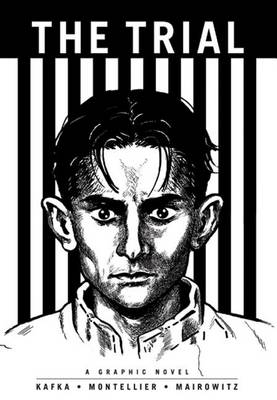Reviewed by celinenyx on
K. is suddenly arrested one morning. He isn't taken to jail - it is expected of him to just keep on working at the bank where he holds a senior position. The trial continues within the nooks and crevices of the town, in a unexplainable manner that isn't even clear to those on the inside.
The Trial shows a very clear view of how confusing and opaque the law is. The law is viewed as a seperate being, something that isn't influenced by people at all. Even the highest advocates and judges can't always affect a case. It is oppressive, and the moment K. gets arrested he loses part of his freedom. He can do as he pleases - but the thought of his trial brings him down. He can barely hold on to his job at the bank and every waking moment is committed to his trial.
I had a hard time liking K. He is annoying, elitist, and doesn't hold women in that high regard while not minding using them for their bodily charms (it's not like the women are protesting though). I found his decisions quite illogical at best, but they do fit the overall style of the book. There aren't really any other well-drawn characters apart from K., all the others play minor rolls as advisers to K. and nothing else.
To me The Trial reads like one big nightmare. If I were to give an interpretation I would say that K. is paranoid, and that he isn't on trial at all. At several moments throughout the story you get the sense that things aren't at all what they seem, and the surreal setting and events seem so disconnected from reality that it feels like they can't be true, not even in a fictional setting. The way characters appear and disappear, the weird coincidences and spatial irregularities, they all add to my suspicion that the story of K. might not be that straightforward as it is told.
A quick read, but not something I necessarily enjoy. My complete apathy towards anything concerning with law might stand in the way of my appreciating The Trial, but I do recognise that it's quite a special novel.
Reading updates
- Started reading
- 29 March, 2013: Finished reading
- 29 March, 2013: Reviewed
